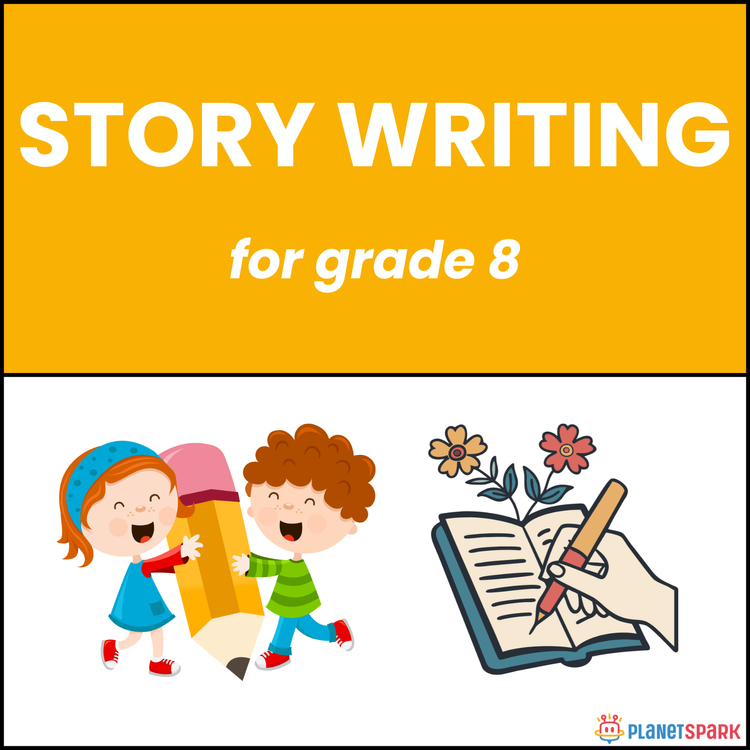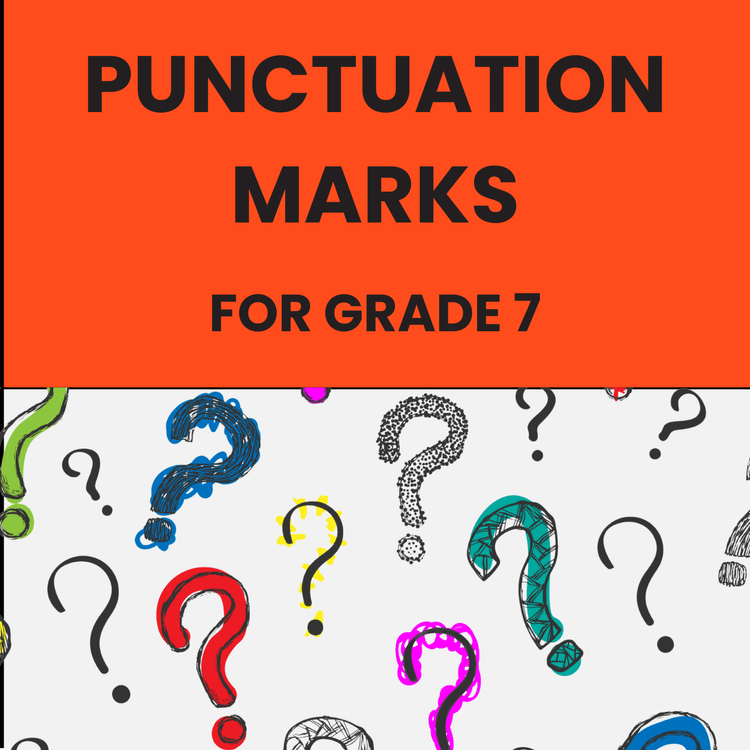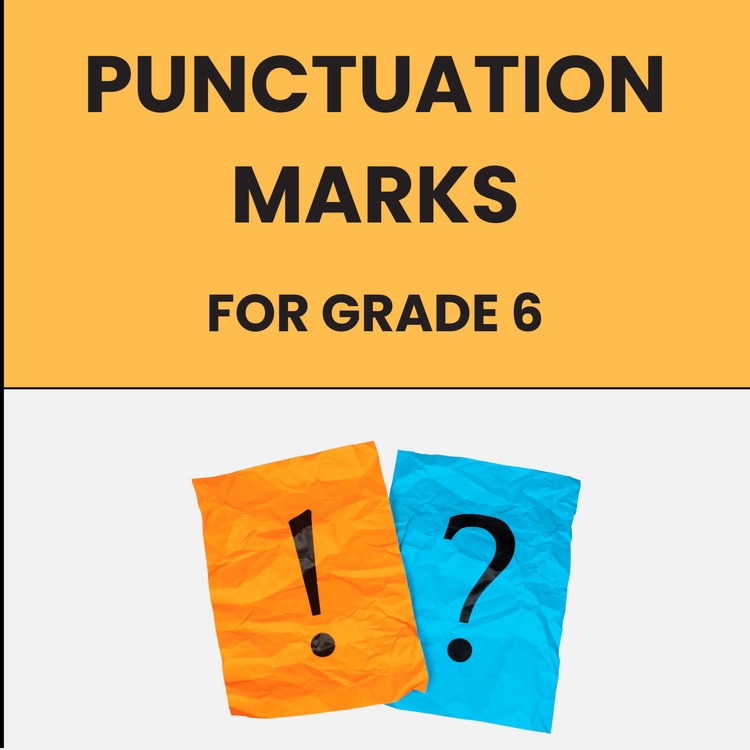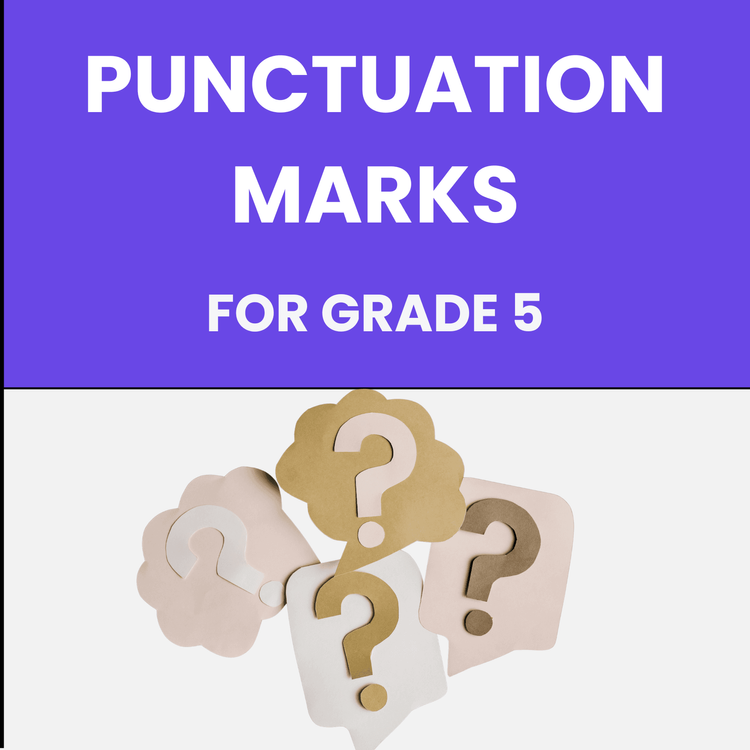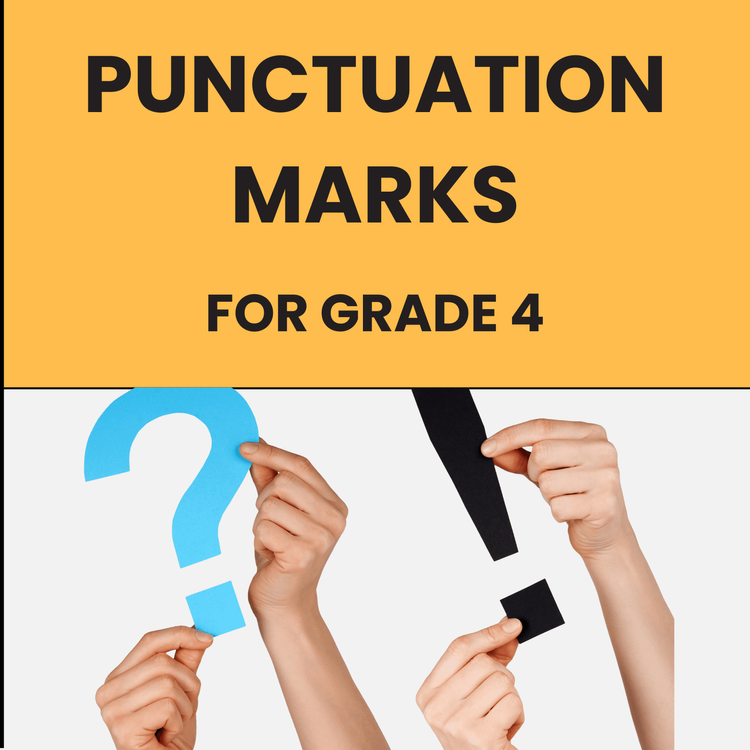Class 8 Idioms and Phrases Practice Sheet
Class 8EnglishEnglish GrammarFree DownloadPDF
Aanchal SoniVisit Profile
I’m a fun-loving TESOL certified educator with over 10 years of experience in teaching English and public speaking. I’ve worked with renowned institutions like the British School of Language, Prime Speech Power Language, and currently, PlanetSpark. I’m passionate about helping students grow and thrive, and there’s nothing more rewarding to me than seeing them succeed.
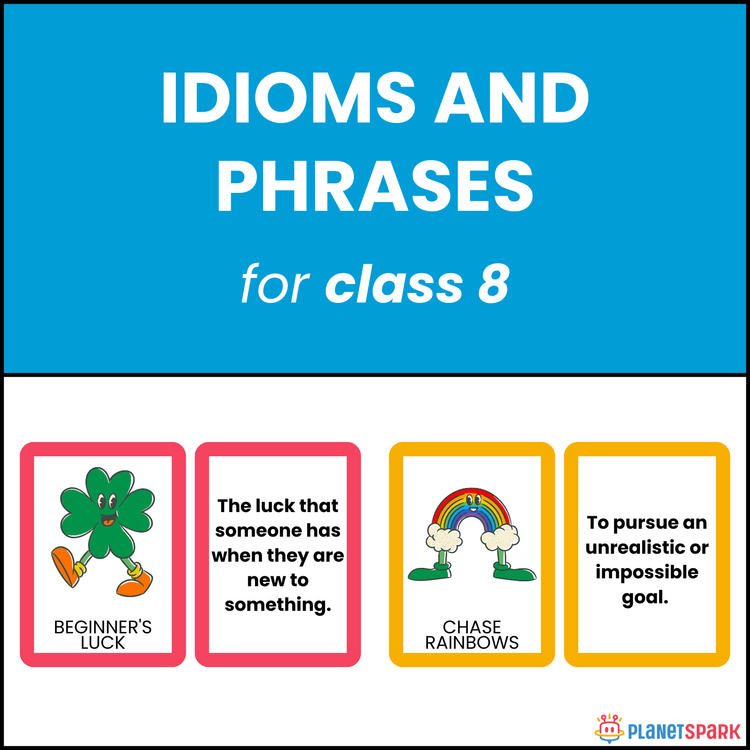

Class 8 Idioms and Phrases Practice Sheet
Class 8EnglishEnglish GrammarFree DownloadPDF
Aanchal SoniVisit Profile
I’m a fun-loving TESOL certified educator with over 10 years of experience in teaching English and public speaking. I’ve worked with renowned institutions like the British School of Language, Prime Speech Power Language, and currently, PlanetSpark. I’m passionate about helping students grow and thrive, and there’s nothing more rewarding to me than seeing them succeed.
Say It Smarter: Idioms and Phrases for Class 8
This engaging Class 8 worksheet helps students master idioms — fun expressions with meanings beyond their literal words. Learners practice using common idioms in real-life situations, matching figurative meanings, identifying literal vs. figurative language, and writing creative idiomatic sentences.
Why Idioms and Phrases Matter in Class 8?
Idioms boost fluency and understanding of natural English. This worksheet helps learners:
1. Interpret idioms in realistic stories and dialogues.
2. Identify figurative meanings clearly and accurately.
3. Write original idiomatic sentences with confidence.
What’s Inside This Worksheet?
This worksheet features five comprehension-rich and expressive activities:
🧠 Exercise 1 – Fill in the Idiom
Students complete a short story using idioms like *break the ice*, *under the weather*, *bite the bullet*, and *a blessing in disguise*.
📘 Exercise 2 – Define the Idiom
For each sentence, students write the figurative meaning of the idiom in bold. Example: *"He spilled the beans."* → *He revealed a secret.*
🔍 Exercise 3 – Literal or Figurative?
Learners decide if an idiom is used literally or figuratively in each sentence. Example: *"She hit the sack early."* → Figurative
✏️ Exercise 4 – Complete the Sentence
Students finish sentence starters using suitable idioms in context. Example: *"The final math paper was so easy that..."* → *"...I didn’t have to burn the midnight oil."*
📝 Exercise 5 – Write Your Own Sentences
Students write creative, original sentences using idioms like *cost an arm and a leg*, *once in a blue moon*, and *throw cold water on something*.
✅ Answer Key (For Parents & Educators)
Exercise 1 – Fill in the Idiom
1. break the ice
2. under the weather
3. let the cat out of the bag
4. bite the bullet
5. a blessing in disguise
Exercise 2 – Figurative Meanings
1. Finally seeing hope after a hard time
2. Someone pretending to be good but is not
3. Caught off guard or surprised
4. Calm and brave under pressure
5. Start a conversation or reduce awkwardness
6. Revealed a secret
7. Don’t give up
8. Feeling sick or unwell
Exercise 3 – Literal or Figurative
1. Figurative
2. Figurative
3. Figurative
4. Figurative
5. Literal
6. Figurative
7. Literal
Exercise 4 – Sample Completions
1. ...I didn’t need to burn the midnight oil.
2. ...broke the ice with a funny story.
3. ...was feeling under the weather.
4. ...bit the bullet and went.
5. ...cost an arm and a leg.
6. ...the ball is in your court now.
7. ...walking on air.
Exercise 5 – Sample Sentences
1. I broke the ice at the party with a silly dance.
2. Losing that job was a blessing in disguise.
3. She was burning the midnight oil before finals.
4. He hit the nail on the head with his suggestion.
5. I bit the bullet and took the shot.
6. I stayed home because I was under the weather.
7. That new phone cost an arm and a leg.
8. We go out for dinner once in a blue moon.
9. She threw cold water on my idea.
10. I’ve explained everything — the ball is in your court.
Mastering idioms boosts your child’s expression, fluency, and writing flair — make their communication stand out today!
🔖Book a free trial
Frequently Asked Questions
Idioms are expressions whose meanings aren't literal (e.g., “kick the bucket” = to die). Phrases are groups of words that work together but may have a literal meaning (e.g., “on the table”).
Idioms add color and style to writing. For example, saying “spill the beans” is more engaging than “reveal the secret.” Worksheets offer meaning-matching, fill-ins, and usage practice.
Examples include: piece of cake, break the ice, hit the sack, once in a blue moon, under the weather, cost an arm and a leg, let the cat out of the bag, time flies, bite your tongue, back to the drawing board.


